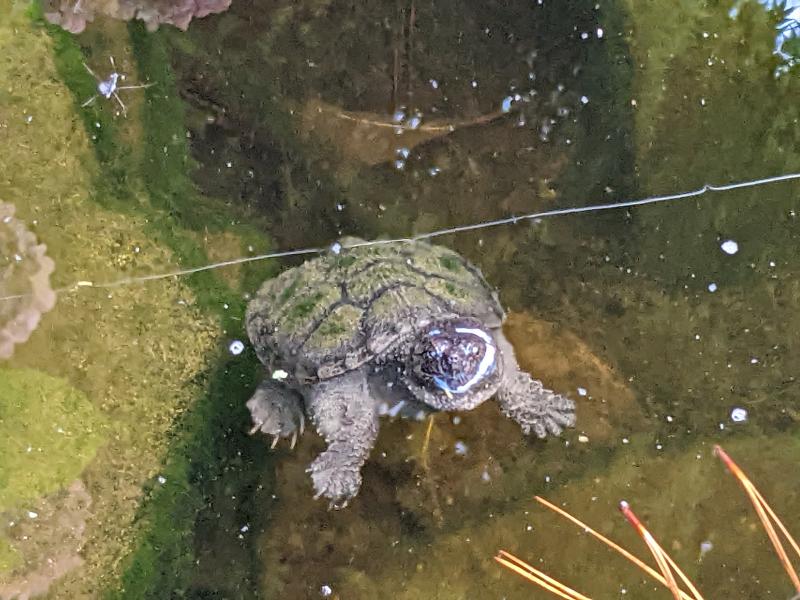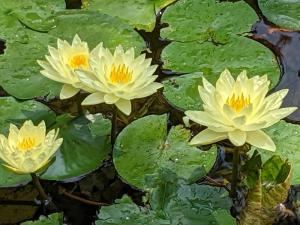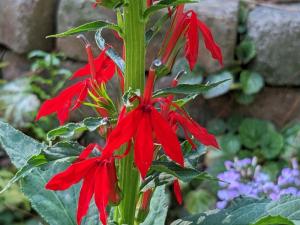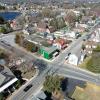Mill Pond Garden will celebrate treasures of the July garden when it opens to visitors from 10 a.m. to 12:30 p.m., Sunday, July 16, rain or shine, closing only for high wind or lightning.
Tickets, available at millpondgarden.com, are $15 to admit a vehicle with up to six visitors.
Mid-July is a peak of flowering in most Cape Region gardens with still-long daylight plus heat that brings out many flowering plants including crape myrtles, hibiscus, hydrangeas, sunflowers, tall phlox, water lilies, sage, asclepias, Joe Pye weed, daylilies, fruits, berries, large tropical foliage plants like bananas, the epiphyte garden with hanging orchids and bromeliads, and ferns, bee balm, many flowering perennials, and flowering annuals including Benary’s Giant Zinnias and cuphea. On the bulkhead garden, visitors may find the largest native American fern, a royal fern with fronds six feet long and the single clump 12-feet spread, a breathtaking spectacle; and a very large collection of native and many non-native ferns for Delaware gardens, both deciduous and evergreen.
Visitors may also enjoy seeing koi and Shubunkin fish in the koi pond, frogs in the frog pond, the nearly tame wild bunnies, or Allie, the wild native snapping turtle in the stream pond. The native birds are abundant and many water birds might be seen on the bordering Red Mill Pond, one of Delaware’s largest fresh water ponds at 258 acres.
Many beautiful sage plants are featured this year with more than a dozen species of perennial and annual sage represented, coming into their own in July and persisting until nearly frost with flowers benefiting hummingbirds and butterflies. A typical visitor takes about a half-hour to stroll the more than 2,000 feet of pathways and walks through the many garden rooms. Sightseers may enjoy vistas onto Red Mill Pond and elsewhere into woodlands and neighboring gardens.
Mill Pond Garden is not only a gem botanical garden but also a National Wildlife Federation Certified Wildlife Habitat with many examples of how gardeners can welcome and promote wildlife by using mostly native plants and beneficial non-native plants, and providing water, shelter, food, and nesting and wintering habitats. A horticulturist will be on duty during open hours























































